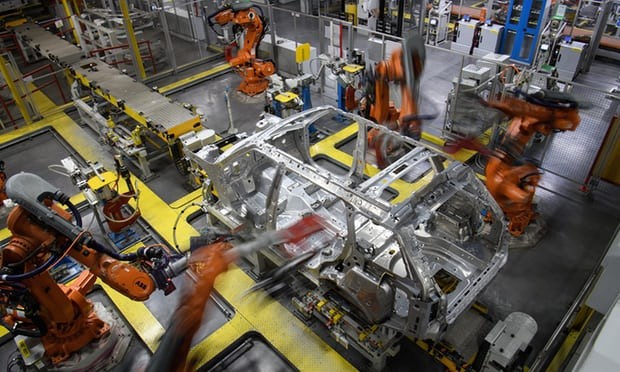Britain develops human resources in science and technology
(VOVWORLD) -British government has issued policies on human resources development in science and technology. It’s an important strategy as Britain leaving the EU will cause shortage of professional workers due to strict immigration regulations.
 Automated production at the Jaguar Land Rover factory in Solihull, England. Photograph: Leon Neal/Getty Images Automated production at the Jaguar Land Rover factory in Solihull, England. Photograph: Leon Neal/Getty Images |
Britain will retrain 1 million workers in industrial sectors in the next 5 years to adapt to digital technology production and serve the post-Brexit industrial strategy. It’s part of a roadmap to enhance investment in the 4 industrial revolution focusing on robotics, artificial intelligence, and technological data exchange.
Leaders of Siemens, IBM, Cisco, John Lewis and GlaxoSmithKline support the government’s plan. They said human resources training requires investment from both the state and private sector. The government should allocate budget for financial initiatives for businesses to invest in digital technology, support digital networking, improving public awareness of cyber security, and protect databases. Business leaders have suggested the government to establish a National Committee to monitor activities relating to the 4th industrial revolution and promote national trademarks and the benefits of the industrial revolution.
Juergen Maier, Executive Director of Siemens UK, said deal between government and industry could put Britain at forefront of new technologies and create thousands of new jobs.
British government has called on general schools to rekindle children’s passion for science, technology, and mathematics to train a generation of engineers, scientists, and mathematicians of the 21st century. In late of the 20th century and early 21st century, Britain was famous for banking and financial services. Britain will concentrate on science and technology as a key part of its industrial development strategy. Britain expects technological renovations will help increase productivity by 25% in 2025 and earn hundreds of billions of pound.
Hong Van